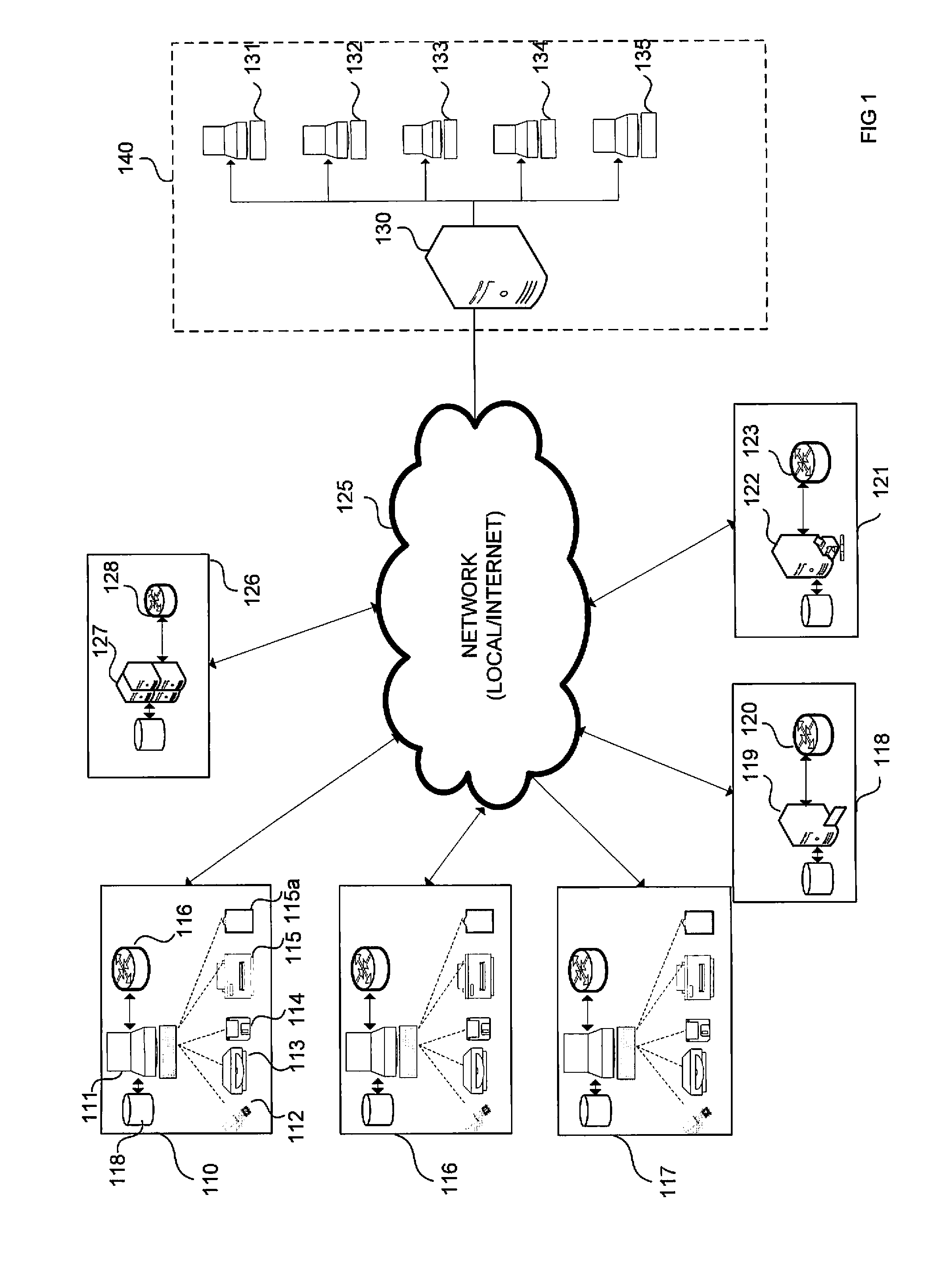Methods and systems for protect agents using distributed lightweight fingerprints
- Summary
- Abstract
- Description
- Claims
- Application Information
AI Technical Summary
Benefits of technology
Problems solved by technology
Method used
Image
Examples
Embodiment Construction
[0021]The present invention may be embodied in several forms and manners. The description provided below and the drawings show exemplary embodiments of the invention. Those of skill in the art will appreciate that the invention may be embodied in other forms and manners not shown below. It is understood that the use of relational terms, if any, such as first, second, top and bottom, and the like are used solely for distinguishing one entity or action from another, without necessarily requiring or implying any such actual relationship or order between such entities or actions.
[0022]FIG. 1 shows one example of an overall setup to implement protect agent lookups using a lightweight fingerprint database. One of the means by which a user can disclose digital information outside of the organization's perimeter is by disclosing the information through his computer system 110. Examples of such a computer system include a desktop computer, a laptop, a PDA or any such device that allows a use...
PUM
 Login to View More
Login to View More Abstract
Description
Claims
Application Information
 Login to View More
Login to View More - R&D
- Intellectual Property
- Life Sciences
- Materials
- Tech Scout
- Unparalleled Data Quality
- Higher Quality Content
- 60% Fewer Hallucinations
Browse by: Latest US Patents, China's latest patents, Technical Efficacy Thesaurus, Application Domain, Technology Topic, Popular Technical Reports.
© 2025 PatSnap. All rights reserved.Legal|Privacy policy|Modern Slavery Act Transparency Statement|Sitemap|About US| Contact US: help@patsnap.com



